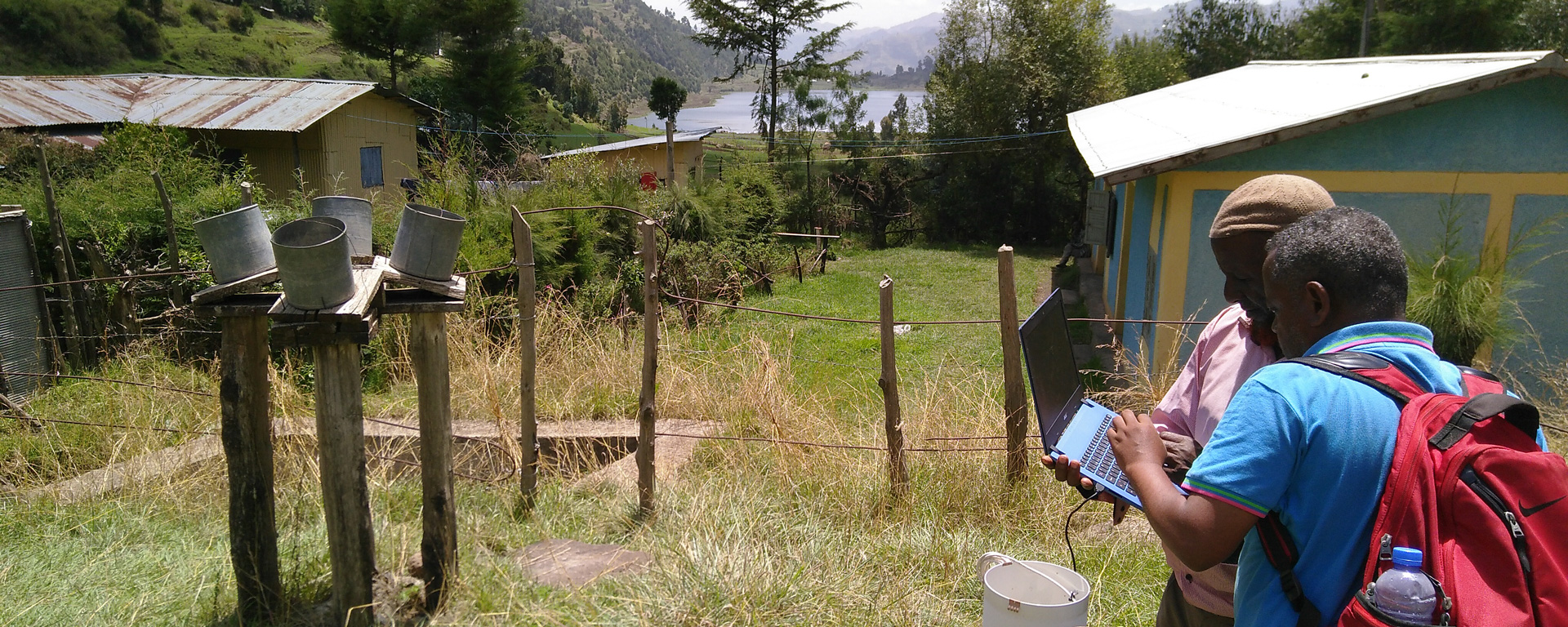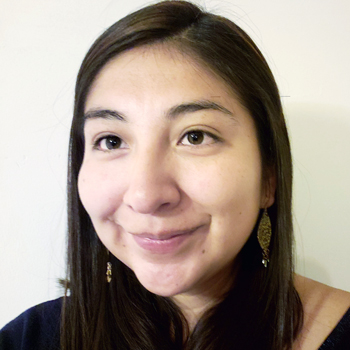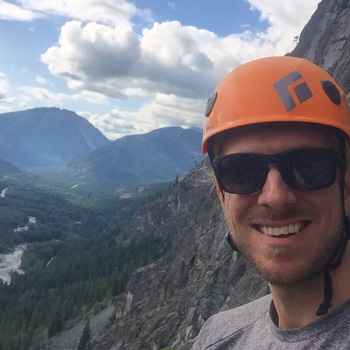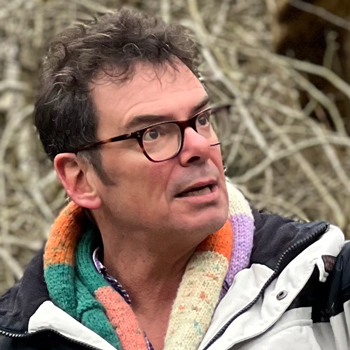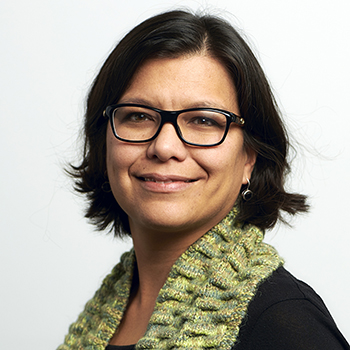Conserving and restoring mountain landscape functions is an important focus of the UN Decade on Ecosystem Restoration 2021–2030. MRD Talk #06 contributed to this global effort and to this year’s International Mountain Day by presenting experiences of how different types of knowledge can support evidence-informed restoration of mountain landscapes for resilient mountain communities. Panelists and participants jointly explored how knowledge can be leveraged to recover degraded or destroyed ecosystems and to conserve intact ecosystems.
Ecosystem restoration, according to the UN Decade on Ecosystem Restoration, means “assisting in the recovery of ecosystems that have been degraded or destroyed, as well as conserving the ecosystems that are still intact.” In the first part of the webinar, Estefanía Quenta, currently research associate at the Instituto de Ecología, Universidad Mayor de San Andrés in La Paz, Bolivia, presented insights into an assessment of mountain restoration activities that she conducted for the Food and Agriculture Organization of the United Nations (FAO) and the United Nations Environment Programme (UNEP) in the context of the UN Decade. In the assessment, Estefanía had looked at how the 10 UN Decade Principles for Mountain Ecosystem Restoration were addressed in 10 highly diverse case studies across the globe. Focusing on Principle 6, “Knowledge Integration,” she said a key finding was that evaluations of restoration outcomes included mainly scientific knowledge, whereas local knowledge was mostly integrated during planning of restoration activities and during the participation of local communities. Estefanía recommends that the specific processes of knowledge integration as well as best management practices be systematically documented. Such documentation is essential to improve restoration efforts and enable the replication of good practices developed by local and Indigenous communities to cope with climate conditions in remote mountain areas.

Ten principles that underpin ecosystem restoration (Food and Agriculture Organization of the United Nations et al 2021, p 4). MRD Talk #06 focused on Principle 6, “Knowledge Integration,” that calls for ecosystem restoration to incorporate all types of knowledge and promote their exchange and integration throughout the process (ibid, p 10).
The importance of systematically documenting best practices was also emphasized by the second panelist, Tatenda Lemann, a senior research scientist at the Centre for Development and Environment (CDE), University of Bern, Switzerland, and member of the World Overview of Conservation Approaches and Technologies (WOCAT) Executive Team. He presented WOCAT, a global network on sustainable land management, and showed how use of its knowledge base supports restoration and sustainable land management in mountains. WOCAT offers support by maintaining a global open network with institutional and individual members and keeping an open access database of sustainable land management technologies and approaches (which currently comprises 2380 sustainable land management practices). It also helps build capacities in response to members’ requests and works with partners to harmonize and further develop knowledge-sharing tools. In his concluding recommendations, Tatenda stressed the need to harmonize methods and standardize data, and underlined the importance of easy access and long-lasting sharing platforms. He also emphasized how important it is to codevelop and coproduce restoration and conservation knowledge with local stakeholders.
Devin Holterman, MRD author and postdoctoral fellow at the University of Northern British Columbia and the Yellowstone to Yukon Conservation Initiative, presented his insights on the potential contribution of social science research to more just and equitable conservation outcomes in the Yellowstone to Yukon region (Canada and USA). Based on their study recently published in MRD, he and his coauthors propose four themes for a social science research agenda: (1) institutional barriers to conservation action, (2) mobilizing support for conservation, (3) adaptive capacity in the Yellowstone to Yukon region, and (4) outdoor recreation and tourism. Along with this agenda, Devin recommends that more funds be allocated to social science research, that decision-makers recognize the value of social science research, that researchers engage in strategic mobilization efforts for conservation activities, and that research needs be co-assessed systematically with all actors concerned.
The fourth panelist, Robert Marchant, Professor of Tropical Ecology at the University of York and member of the Mountain Research Initiative’s Science Leadership Council, illustrated the importance of both historical and scenario modelling approaches to understand the dynamic value of mountain ecosystems for sustainable development. He showed how past changes in the landscapes of the Eastern Arc Mountains in Kenya and Tanzania are linked to today’s multiple crises, and how this knowledge helps in looking to the future. Rob and colleagues developed a tool called KESHO (“tomorrow” in Kiswhahili) for joint scenario development among diverse actors to identify pathways toward sustainable futures. In his recommendations, he called for more information at fine grain size, for mapping spatiotemporal rates and directions of changes, for integration of different perspectives and codesign of approaches, as well as for targeted training and learning processes. He also reminded us to always be aware of whose voices are (not) in the room.

Integrating different knowledge perspectives is key for co-designing restoration and conservation activities. (Photo by Rob Marchant)
These enriching four panel presentations were followed by an interactive discussion using the “open space technology” method. Participants proposed themes for discussion and chose three topics they wished to explore with the panelists and the other participants. One group discussed barriers to knowledge production and knowledge mobilization and ways to overcome them. They talked about the use of mobile and similar technologies in the research process, highlighting how it can make the process more equitable and accessible, but often also comes with limitations in terms of unequal access to these technologies. Another group focused on regenerative mountaineering and exchanged about the balancing act between sustainable mountain tourism and overtourism and its effects on mountain ecosystems and people. A third group talked about ways of guaranteeing transparency of knowledge integration processes in restoration activities by systematically documenting them. The group called for inclusion of local partners, for more funding to support knowledge integration processes, and for restoration projects to honor and integrate the voices of local communities.
MRD associate editor Sarah-Lan Mathez-Stiefel concluded the event by highlighting 3 key recommendations that emerged from the panel and the group discussions on how knowledge can support restoration and conservation of mountain ecosystems:
- Engagement, inclusion, and collaboration are key—especially regarding different forms of knowledge—but they can also be challenging to implement.
- Information must be robust and must be collected and documented in a systematic and standardized way in order to adequately inform policy- and decision-making.
- There is a need to integrate different disciplines and perspectives on the dynamics of social-ecological systems, including environmental, historical, and social science perspectives as well as scenario modelling, to inform restoration efforts and policies.
Presenters
Moderators
Resources
Featured MRD article
Other resources
- Food and Agriculture Organization of the United Nations, International Union for the Conservation of Nature Commission on Ecosystem Management, Society for Ecological Restoration. 2021. Principles for Ecosystem Restoration to Guide the United Nations Decade 2021–2030. Rome, Italy: Food and Agriculture Organization of the United Nations.
- Food and Agriculture Organization of the United Nations, United Nations Environment Programme. 2023. Restoring Mountain Ecosystems: Challenges, Case Studies and Recommendations for Implementing the UN Decade Principles for Mountain Ecosystem Restoration. Rome, Italy and Nairobi, Kenya: FAO and UNEP.
- Parisi F, Lee Y, Bitsch J, Schmoeker G, Quenta Herrera E, Wang J, Hofer T, Marchant R, Chettri N, Liniger H. 2022. Ecosystem Restoration in the Mountains. Policy Brief. Kathmandu, Nepal: International Centre for Integrated Mountain Development and Mountain Partnership Secretariat.
- WOCAT – the World Overview of Conservation Approaches and Technologies (Website)
- Critchley W, Harari N, Mekdaschi-Studer R. 2021. Restoring Life to the Land: The Role of Sustainable Land Management in Ecosystem Restoration. Bonn, Germany and Bern, Switzerland: UNCCD and WOCAT.
- Yellowstone to Yukon Conservation Initiative. 2023. Understanding the human perspective: Key to successful conservation from Yellowstone to Yukon. News and Updates: Science. Canmore, Canada: Yellowstone to Yukon Conservation Initiative.
- UN Environment Programme, GRID-Arendal, Global Mountain Biodiversity Assessment, Mountain Research Initiative. 2021. Indicators for Elevating Mountains in the Convention on Biological Diversity’s Post-2020 Global Biodiversity Framework. Policy Brief. Arendal, Norway: GRID-Arendal.
- Cuni-Sanchez A, Sullivan MJP, Platts PJ, Lewis SL, Marchant R, Imani G, Hubau W, Abiem I, Adhikari H, Alrecht T, et al. 2021. High aboveground carbon stock of African tropical montane forests. Nature 596:536–542.
- Thorn JPR, Klein JA, Steger C, Hopping KA, Capitani C, Tucker CM, Nolin AW, Reid RS, Seidl R, Chitale VS, Marchant R. 2020. A systematic review of participatory scenario planning to envision mountain social-ecological systems futures. Ecology and Society 25(3):6.


